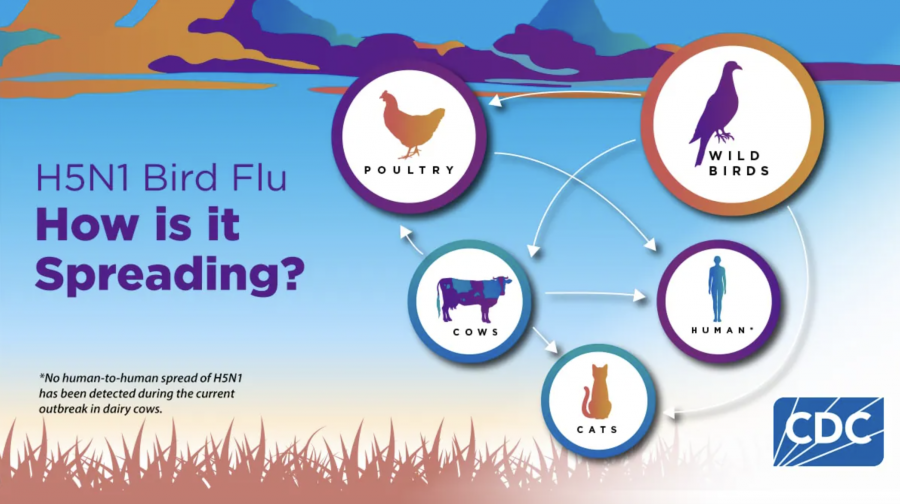Wayne State crisis expert warns of region’s vulnerabilities to infectious disease
Amanda LeClaire January 21, 2025WSU’s Dr. Matt Seeger says robust communication is necessary to fight misinformation about the highly pathogenic H5N1 virus and other potential crises.

H5 bird flu is widespread in wild birds worldwide and is causing outbreaks in poultry and U.S. dairy cows.
Access to accurate information is critical during a crisis, whether it’s a climate disaster, pandemic, or local emergency.
One person working to address these challenges is Wayne State University’s Dr. Matt Seeger, an expert in emergency and crisis communication.
He warns that the region’s vulnerabilities, exacerbated by climate change and class disparities in allocated resources, require robust and diverse communication strategies to keep residents informed and safe.
Seeger says traditional mediums like radio remain critical during disasters.
“It’s really, really hard to knock a radio station off the air,” he says, citing recent examples of broadcasters still operating with damaged buildings during Hurricane Helene and Milton.
Southeast Michigan has an additional vulnerability, according to Seeger – infectious diseases. Seeger says the highly pathogenic H5N1 virus is an increasing concern for the region, impacting 25 dairy herds and nearly seven million birds in the state since last January, according to the U.S Department of Agriculture. In addition, two Michigan dairy farmworkers also tested positive for the virus following exposure to infected cows.

Seeger fears the misinformation surrounding COVID-19 could repeat if avian influenza also reaches pandemic levels. To combat that scenario, he advises local agencies to increase coordination among the local, state and federal levels, as well as providing more resources to underserved communities during a crisis.
No human-to-human spread of H5N1 has been detected during the current outbreak, according to the CDC. While the current public health risk is low, the agency says it is watching the situation carefully and working with states to monitor people with animal exposures.
Trusted, accurate, up-to-date.
WDET strives to make our journalism accessible to everyone. As a public media institution, we maintain our journalistic integrity through independent support from readers like you. If you value WDET as your source of news, music and conversation, please make a gift today.
Author
-
 Amanda LeClaire is an award-winning journalist and managing editor and lead reporter of WDET's new environmental series, the Detroit Tree Canopy Project, as well as WDET's CuriosiD podcast. She was the host of WDET’s CultureShift and a founding producer of the station’s flagship news talk show *Detroit Today*. Amanda also served as a Morning Edition host at WDET and previously worked as a host, audio and video producer, and reporter for Arizona Public Media.
Amanda LeClaire is an award-winning journalist and managing editor and lead reporter of WDET's new environmental series, the Detroit Tree Canopy Project, as well as WDET's CuriosiD podcast. She was the host of WDET’s CultureShift and a founding producer of the station’s flagship news talk show *Detroit Today*. Amanda also served as a Morning Edition host at WDET and previously worked as a host, audio and video producer, and reporter for Arizona Public Media.
